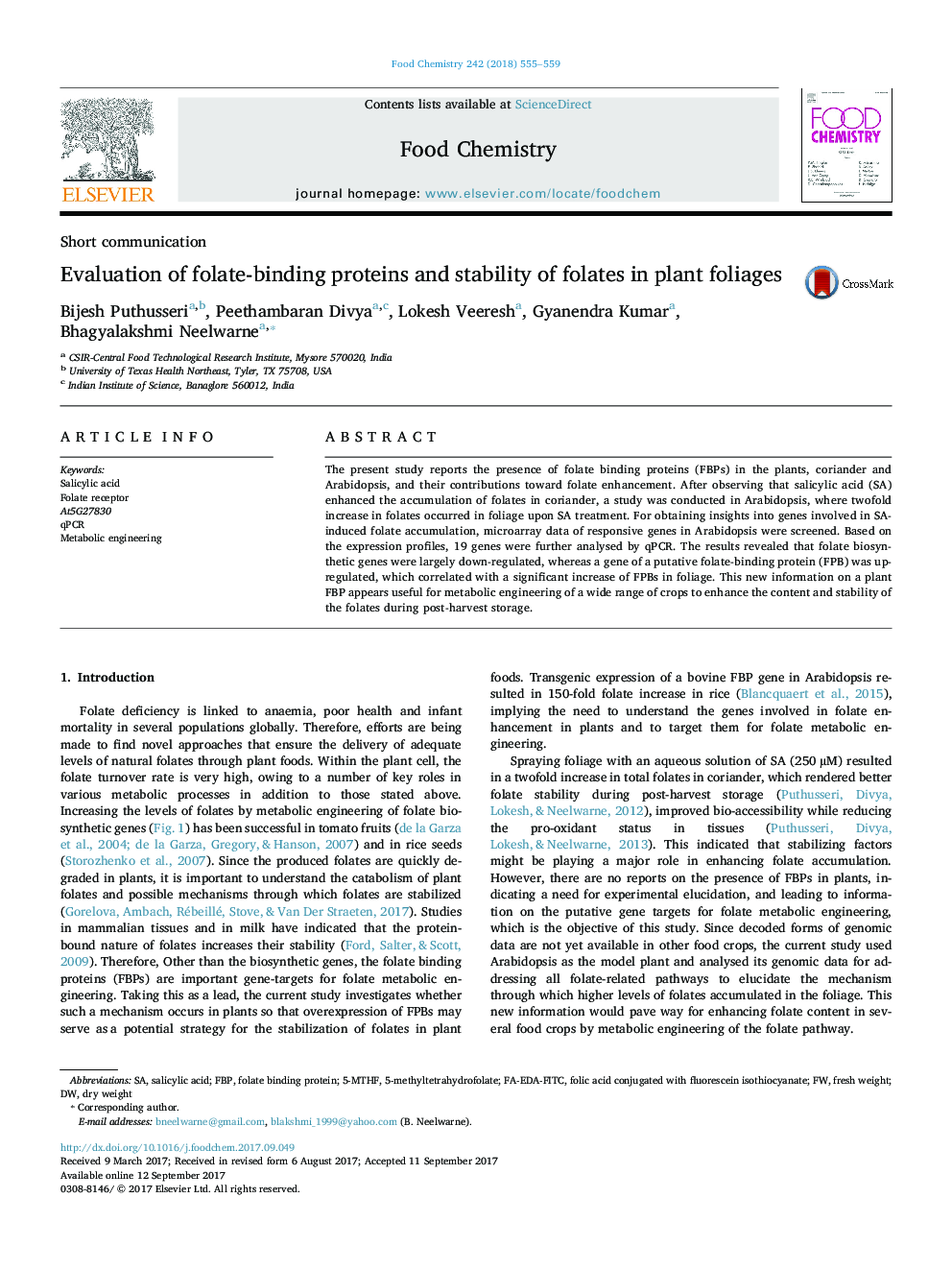| کد مقاله | کد نشریه | سال انتشار | مقاله انگلیسی | نسخه تمام متن |
|---|---|---|---|---|
| 5132652 | 1492050 | 2018 | 5 صفحه PDF | دانلود رایگان |
- Spraying Arabidopsis foliage with salicylic acid increased folates.
- A gene coding for a putative folate-binding protein was over-expressed.
- The presence of a putative folate binding protein was confirmed in Arabidopsis.
- Levels of folates and folate-binding protein corroborated with each other.
The present study reports the presence of folate binding proteins (FBPs) in the plants, coriander and Arabidopsis, and their contributions toward folate enhancement. After observing that salicylic acid (SA) enhanced the accumulation of folates in coriander, a study was conducted in Arabidopsis, where twofold increase in folates occurred in foliage upon SA treatment. For obtaining insights into genes involved in SA-induced folate accumulation, microarray data of responsive genes in Arabidopsis were screened. Based on the expression profiles, 19 genes were further analysed by qPCR. The results revealed that folate biosynthetic genes were largely down-regulated, whereas a gene of a putative folate-binding protein (FPB) was up-regulated, which correlated with a significant increase of FPBs in foliage. This new information on a plant FBP appears useful for metabolic engineering of a wide range of crops to enhance the content and stability of the folates during post-harvest storage.
Journal: Food Chemistry - Volume 242, 1 March 2018, Pages 555-559
